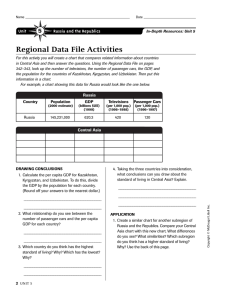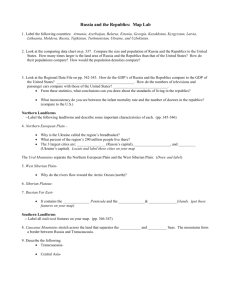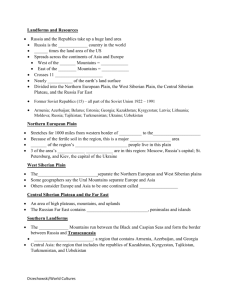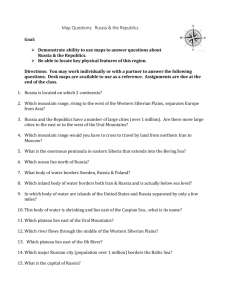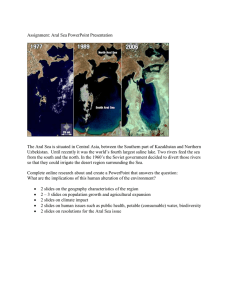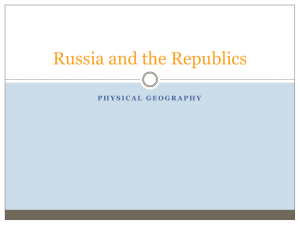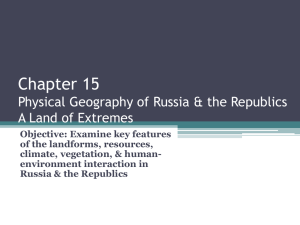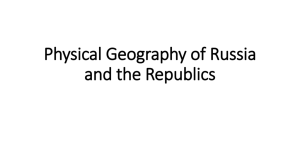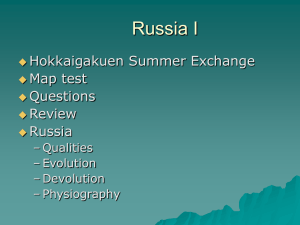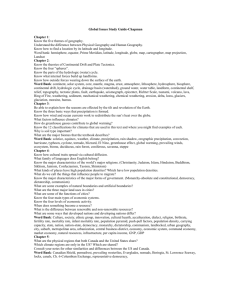Russia & Eurasian Republics: Geography, Climate, Resources
advertisement
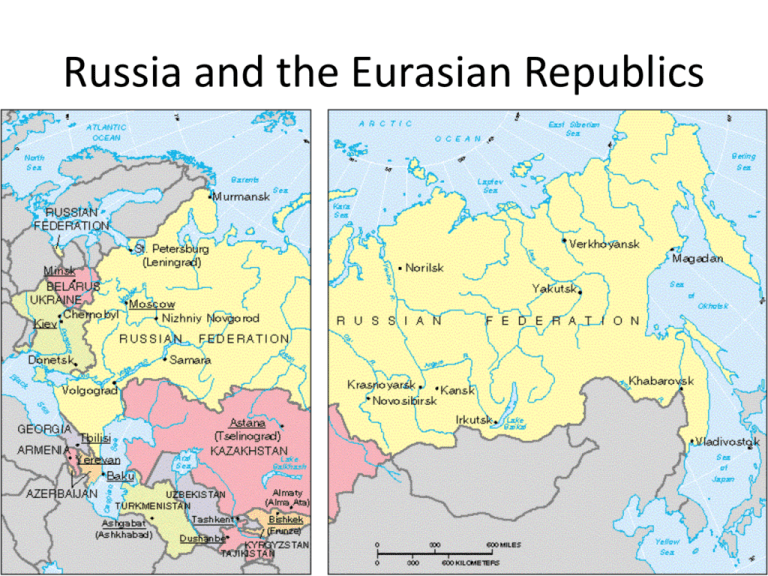
Russia and the Eurasian Republics 1.1 Physical Geography • Russia and the Eurasia republics make up 1/6th of the land surface on earth • Russia is 6,000 miles long from east to west • Eurasia republics include: Azerbaijan, Georgia, Armenia, Kazakhstan, Kyrgyzstan, Tajikistan, Turkmenistan, and Uzbekistan Geographic features • Huge plains called steppes- Northern European Plain and West Siberian Plain • Central Siberian Plateau • Oceans- Arctic to the north and Pacific to the east • Deserts to the south • Mountains- Caucasus- Eurasian republics and Ural in west central Russia 1.2 Land of Extreme Climates • ½ of the land in Russia is permafrost • Winters are cold- some areas have 60 below zero temperatures • Winters are also dark- some areas have darkness all day for more than a month • Vegetation is affected by the climate – Tundra – only small plants, few trees – Taiga- forest area – Agriculture is limited to western plains( Black and Caspian Sea areas) Herding in arid and semiarid areas 1.3 Natural resources • Among the richest in the world in resources – – – – Oil and natural gas in Eurasia Peat – Hydroelectric powerIron ore, aluminum, gold, copper, platinum, uranium, cobalt, manganese and chrome • Resources are hard to reach in Siberia – Remote locations – Permafrost makes harvesting resources very difficult 1.4 Central Asian Landscapes • Efforts to grow cotton in Kazakhstan and Uzbekistan with irrigation have led to the shrinking of the Aral Sea • Problems – Heavy fertilizer and pesticide residues were left in the land – Loss of habitat for both plants and animals – Threat to humans- toxic chemical in the land – Fishing industry was almost non existent • Dams were built in 2005 in Kazakhstan to save the North Aral Sea
